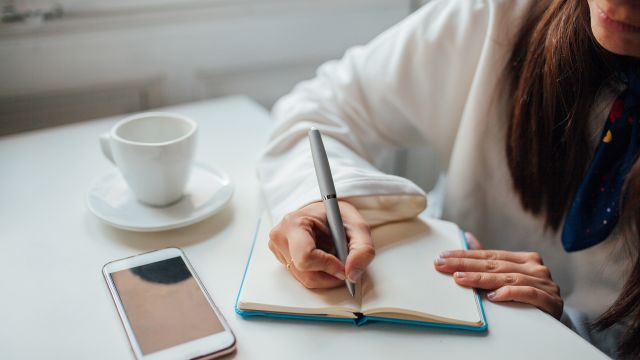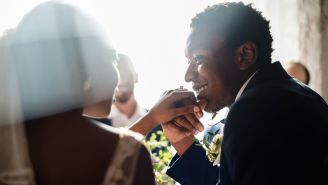Toxic relationships mean different things to different people. But if you've experienced a relationship hardship, there is going to be a healing process—and you shouldn’t be afraid of it.
A relationship that leads to stress (and most toxic relationships do) can contribute to high blood pressure, decreased immunity, anxiety, depression and a higher risk of heart disease.
Recovering and moving on from an abusive marriage, a dramatic friendship or an unhealthy family relationship is only going to help you become stronger and ultimately, healthier.
8 signs you’ve been in a toxic relationship
What does a toxic or negative relationship look like, and how do you know if you’re really in one? Here are some warning signs you might have a toxic person in your life, according to Psych Central:
- You’re affected by the person’s own drama
- You dread being around them
- Interacting with them makes you angry
- You feel embarrassed or ashamed after spending time with them
- You’re always trying to “fix” the person
- The other person does not respect or listen when you say “no”
- You’re beginning to ignore your own morals
- You feel like you’re being controlled
You’ll have to evaluate your own relationship to determine what’s causing you pain as being involved in a toxic relationship can leave you feeling exhausted and upset. However, there are some healing strategies that will help you get closure and make peace with past and present relationships.
Understand that you deserve better
It’s okay (and it’s healthy) to break ties with toxic people, so just remind yourself that you’re doing the right thing. Not sure how to end the relationship? If it’s an abusive one, here are some safe tips to follow. If you’re dealing with a toxic friendship of some sort, try these tips.
Rid your mind of the toxic person
If you haven’t already, you’ll want to stop talking about the toxic person. It’s better to focus your time and energy on people that support you and make you happy, rather than people who bring you down.
Having a hard time disconnecting from the toxic person? Focus more on discovering the types of people you want to surround yourself with. Here’s how:
- Write out your life goals and determine which family members or friends are helping you achieve them and make plans to spend more time with them.
- Plan to meet up for long walks at the park, supper clubs, workout classes or a cup of coffee once a week, when you can.
Start writing in daily journal
Research shows that writing or journaling post-breakup may actually lead to a more positive healing process.
One study followed nearly 100 single people who had experienced breakups sometime in the three months prior. People who wrote about the positive parts of their breakups for at least 15 minutes per day had more positive emotions when thinking of the breakup when compared with people who wrote about the negative aspects of the breakup and those who wrote about something totally unrelated to the breakup.
People with positive outcomes wrote down anything encouraging related to the factors leading up to the break-up, the actual break-up and the period of time right after the break up.
Try spending a few minutes each day writing down the positive things you learned from the break-up (Did you grow stronger as a person? Did you learn how to deal with conflict?). Focus on making notes about those positive aspects.
You may find that journaling will also allow you to speak more freely about your experience when talking with others about what happened.
Practice forgiveness (yes, really!)
This one may seem impossible, but being able to forgive someone who has wronged you—whether they lied, cheated or hurt you—is ultimately going to make you a better person. Even if you’ve held a grudge for years, according to the American Psychological Association (APA), it’s still possible to practice forgiveness and learn how to forgive over time.
One study published in the Journal of Health Psychology found that the volunteers they followed who were able to practice forgiveness had better mental health overall. And another study, published in the Annals of Behavioral Medicine, suggests that as forgiveness rises, stress levels decrease.
So how can you practice forgiveness? Here are a few of the ways:
- If you’re religious, prayer may help you work through the forgiveness process.
- A psychologist can discuss the practice as a whole: things like uncovering negative feelings, deciding to forgive and learning to understand and empathize with the other person may be among their strategies.
- You may have to face the hurt and betrayal head on, then address the issues with the person face-to-face. Accept what happened by looking back to the past and thinking about how it affected you.
- Understand that no human being is perfect, and that we all have flaws. Try to think about why the other person did what they did (even though it may have been wrong) and the fact that they may have been addressing their own personal needs.
There are many elements to consider when working towards forgiving someone, but if you’re able to think about what happened, accept that it happened and why, you’re one step closer to forgiving them.
Seek outside help if you need it
Depending on the type of relationship you’ve been in, you may want to seek professional help to start the healing process. Don’t be afraid to reach out to a psychologist, counselor or trusting friend that can listen and help talk about what you’ve been through.






